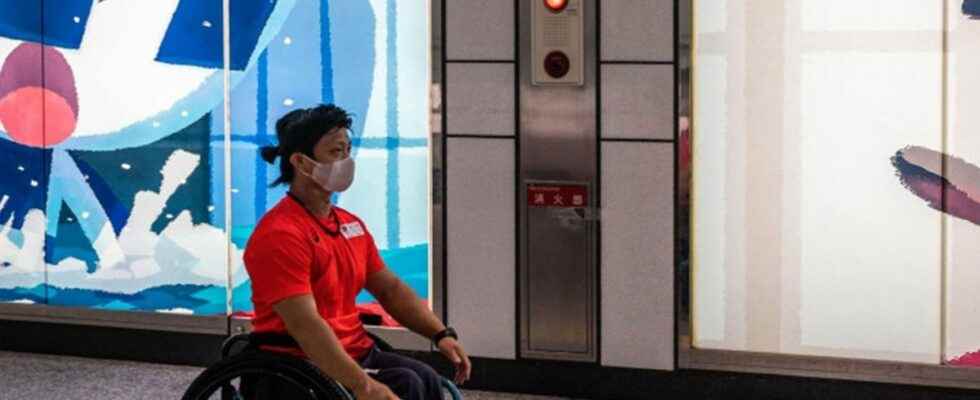Published on
Updated
Reading 3 mins.
Will disabled spectators be able to easily access the Olympic venues to enjoy the competitions? A year and a half before the Paris Olympics, associations are worried about potential obstacles, while the organizers want to be reassuring.
From ticketing to installation in the stands, including accommodation and transport, the Olympic Games must be “perfectly accessible”, assures the government.
APF France handicap fears a “dark scenario”
Despite the ambition displayed, APF France Handicap fears that the future measures will be insufficient, even considering a “black scenario” for the 350,000 disabled people who should attend the Games.
“We have the feeling that the subject is not strongly supported”, comments to AFP Patrice Tripoteau, director of the association, one of the largest in France. He wishes to raise the question in this “pivotal period”.
APF France Handicap is particularly concerned about the number of adapted rooms in Parisian hotels, “very limited despite regulatory obligations“.
“Many establishments benefit from derogations” due to the age of the buildings, but the capital’s park “is improving”says David Zenouda, a leader of the Paris branch of the Union of Trades and Hotel Industries.
For the time being, the Tourist Office has identified 3,450 rooms adapted for people with reduced mobility (PRM) in Greater Paris. It is carrying out an audit, the results of which are expected at the end of the first semester, to assess how many are adapted to other types of disability.
The Ministry of Sports hopes to be able to direct spectators who have purchased tickets to these previously identified accommodations.
Individual solutions
Another point of concern for the associations: the means of transport, which are not very accessible.
“There will be a lot of people during the Olympics, but it’s even more difficult to move around in the crowd”, underlines Bruno Gendron, president of the Federation of the blind of France. It requires the installation of tactile guide strips up to the entrances, and models of the stadiums in relief, so that the person can find their way around better once inside.
He also says he is “worried” because “it takes time” to make these devices. In France, “disability is not sufficiently taken into account upstream of projects”.
So that each spectator can reach the competition venues, the organizers of the Olympic Games plan to rely on a system with collective and individual transport.
“The objective is not to have the same solution for everyone, but to understand the needs of each person and adapt the offer to their specificity”explains to AFP Lambis Konstantinidis, director of planning and coordination at Paris 2024.
By buying their ticket on the internet, the future spectator will be able to indicate if they have a disability and if they need help to organize their trip. He will then be contacted by customer service, according to the organizers.
Personal vehicles or shuttles?
Disabled spectators can go there with their personal vehicle or take taxis which will drop them off near the entrances. They will be welcomed there by staff.
Around 200 Parisian taxis are currently adapted for people with reduced mobility and the government’s objective is to reach 1,000 by 2024.
On the public transport side, only metro line 14 is fully accessible. But the majority of bus stations are and the Paris City Hall aims to have them all by the Olympics.
Raising the platforms, installing sound beacons, improving signage: major work is taking place to make stations accessible, as part of a plan that runs until 2025. In the provinces, more than 360 stations will have been treated before the Games, i.e. 70% of the fleet, according to the SNCF.
In Ile-de-France, “more than 270 Ile-de-France stations will be accessible during the Olympic Games, including all those serving the competition sites”told AFP Laurent Probst, managing director of Ile-de-France Mobilités (IDFM).
The regional transport authority plans to complete its system with shuttles for people with reduced mobility, between the main Parisian stations and the stadiums.
APF France Handicap stresses the importance of providing reinforced reception facilities, in stations and airports, the usual services being “already saturated”. “If people have a bad experience, they won’t come back. It’s the image of France that is at stake,” underlines its director Patrice Tripoteau.
